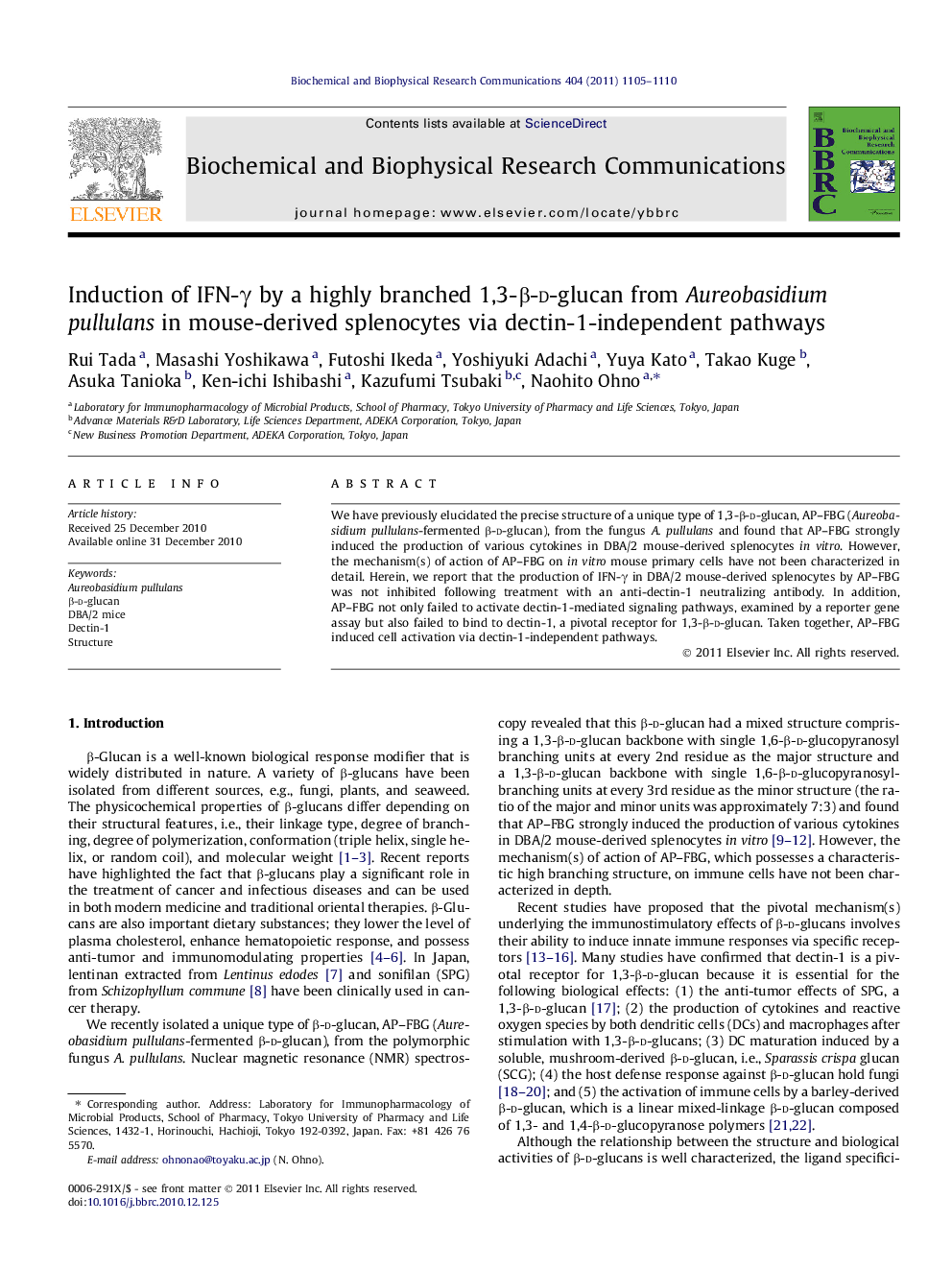| Article ID | Journal | Published Year | Pages | File Type |
|---|---|---|---|---|
| 1931290 | Biochemical and Biophysical Research Communications | 2011 | 6 Pages |
We have previously elucidated the precise structure of a unique type of 1,3-β-d-glucan, AP–FBG (Aureobasidium pullulans-fermented β-d-glucan), from the fungus A. pullulans and found that AP–FBG strongly induced the production of various cytokines in DBA/2 mouse-derived splenocytes in vitro. However, the mechanism(s) of action of AP–FBG on in vitro mouse primary cells have not been characterized in detail. Herein, we report that the production of IFN-γ in DBA/2 mouse-derived splenocytes by AP–FBG was not inhibited following treatment with an anti-dectin-1 neutralizing antibody. In addition, AP–FBG not only failed to activate dectin-1-mediated signaling pathways, examined by a reporter gene assay but also failed to bind to dectin-1, a pivotal receptor for 1,3-β-d-glucan. Taken together, AP–FBG induced cell activation via dectin-1-independent pathways.
Research highlights► AP–FBG failed to activate dectin-1-mediated signaling pathways. ► AP–FBG cannot bind to 1,3-β-glucan receptor, dectin-1. ► AP–FBG induces IFN-γ production through a dectin-1-independent pathways.
